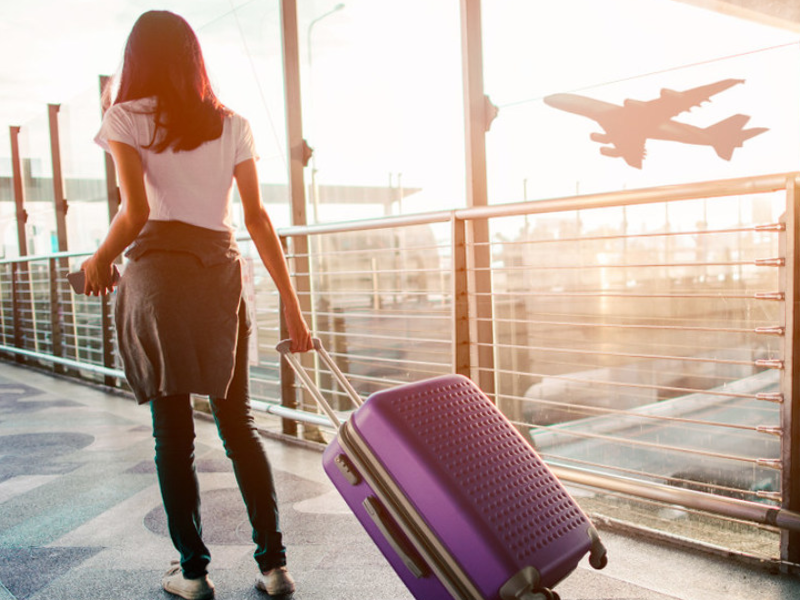The world is undergoing radical changes since the outbreak of one of the deadliest pandemics ever. During the fag end of 2019, or more precisely the beginning of 2020, the world came to a standstill and business to a screeching halt. For the next one year or so, the world is to witness changes hitherto never even heard of. Businesses all over the world have taken a heavy beating due to restrictions that the Novel Coronavirus or COVID-19 steadily brought about. Though few business sectors managed to survive and more so do spectacularly well such as health, e-learning and digital transformation, traditional business areas including manufacturing, education, travel, tourism, food, hospitality, agriculture and few other service sectors continued to bleed blood. Travel, among all industry sectors, was the worst affected, and for the industry to recover appreciably will be a herculean effort.
Read more: 8 Countries That Have No COVID-19 Cases
To revive the hopes of the travel industry, we need to understand the changes that were set in motion by the pandemic, mostly due to the restrictions that paralyzed the movement of men and goods. Lockdown after lockdown prevented people from coming into contact with one another. Through adoption of digital communication tools, mostly internet-based, communication and networking heightened during the pandemic.
Related Article – 5 Fun Stuff to Do with Family During The Covid-19 Lockdown
Next, social distancing ensures that there is a virtual line of fire that prevents the spread of the pandemic. Wearing a mask and use of sanitizers became the new norm. The most important measure, however, was the global vaccination drive, keeping a check on the spread of the virus. All the aforementioned efforts are aimed at keeping the pandemic at bay, and for normalcy to return in the immediate future.
Must Read: Domestic Flight Travel Experience During The COVID-19 Pandemic
Travel Trends associated with COVID
Talking about the changes that the COVID has brought about, which is the primary line of thought in this article, here are some of the key trends that will continue to shape the future of travel operations anywhere in the world.
#1. Hygiene & Safety first
Hygiene & safety will dominate the core theme of setting travel standards in the future. A lot depends on how the local authorities frame travel restrictions in COVID-affected regions (depending upon the intensity: low/moderate/high). Based on the travel restrictions, anyone travelling to COVID-affected regions may have to plan accordingly keeping in mind the safety guidelines. COVID safety protocols have to be integrated onto the way a hotel or restaurant is marketed, and more importantly they must be clearly mentioned in the promotion content to avoid negativity.
#2. Focus on Leisure Travel than ‘Bleisure’
With most conferences, seminars and team meets happening remotely, tour operators should tailor their travel packages to attract leisure travel. Though it is not the end of the road for Business plus Leisure travel or ‘Bleisure’, it can take a few months to even a couple of years for a ‘bleisure’ tour to return to normalcy.
#3. Local vs. International Travel
Travel post-pandemic will get more interesting with local travel destinations preferred over international destinations. This is because of the risk factors generally associated while travelling abroad. Any travel agency will also have a ready ground report of the active caseload in a particular area for informed decision-making concerning travel.
Must Read: Same Day Flight Booking During Covid-19
#4. Contactless operation
Hotels and restaurants that adopt contactless operation to the maximum will be preferred over those that don’t. This has a lot to do with safety as any contact with the virus through objects can further its spread. Contactless payment over the years has increased manifold first due to the adoption of digital payments, and now gaining greater traction than ever before post-pandemic. It is also important for the hotels and restaurants to automate the process wherever possible for contactless operation.
#5. Customer Experience (CX)
Another term that has emerged as a winner is Customer Experience (CX) where a safe travel experience is the need of the hour. The right experience starts with transparency, and travel operators, hotels and restaurants must be completely transparent about their offerings and experience delivered.
In addition to the aforementioned points, the emergence of innovative technologies like Artificial Intelligence (AI), Machine Learning (ML), Augmented Reality (AR), Virtual Reality (VR), Robotics, Internet of things (IoT), Voice-based experience, Personalization, Recognition technology, among others will play a vital role in defining the future of travel and tourism post-pandemic. To cover every technology here will be beyond the scope of the article, but it is noteworthy that every bit of innovation, as part of the travel business model, will increase the prospects of a safe and secure travel. Equally important is the right tech adoption by the different stakeholders for a specific travel related function or experience. If you’re searching for the right travel agency in Coimbatore , then make sure you follow the above actionable tips for optimized travel experience.
Must Read: COVID Hotel Crisis – How to Prepare For the Future
